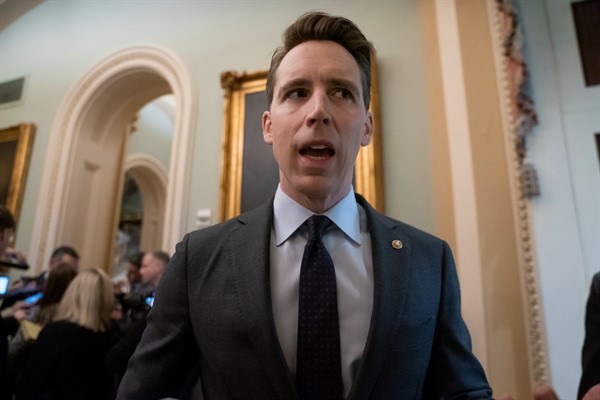In an op-ed last week, Sen. Josh Hawley, a Republican from Missouri, called for the abolition of the World Trade Organization and the restoration of “America’s economic sovereignty.” A few days later, the Department of Labor reported that the unemployment rate had surged to almost 15 percent since the coronavirus pandemic hit—the highest level since the Great Depression.
The timing of Hawley’s article could not help but bring to mind the Tariff Act of 1930, also known as the Hawley-Smoot tariff after its sponsors Rep. Willis Hawley of Oregon (no relation to the senator) and Sen. Reed Smoot of Utah. Then, as now, the world desperately needed international cooperation to mitigate economic disaster. But instead, the United States raised tariffs to historic levels, triggering retaliation from trading partners and a downward spiral in trade that deepened the Great Depression.
Today, Sen. Josh Hawley shows no sign of remembering this history in which another Hawley in Congress played such a prominent role, and he seems content with repeating it. In his New York Times op-ed, the senator vastly exaggerates what the WTO actually does and seems clueless about its origins, or the real costs of abolishing it. For example, he says that, according to the vision of “a new liberal international order” adopted after the Cold War, nation-states “would become less important in setting economic policy and new, multilateral institutions, like the W.T.O., would take on the role of managing the global economy.” That is so far from reality that it is hard to know where to start. It’s also not exactly clear what Hawley means when he calls for restoring sovereignty and “returning production to this country,” but the tone cannot be reassuring to anyone familiar with how the 1930s unfolded.

